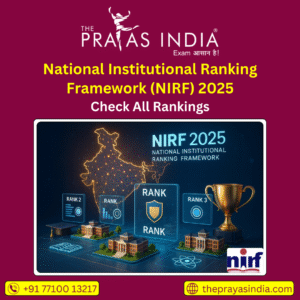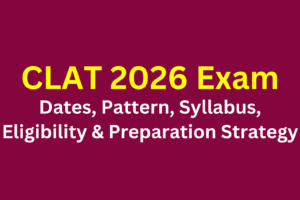UN Specialised Agencies – Roles, Functions, and India’s Engagement
Introduction
The specialised agencies of the United Nations are autonomous international bodies, each administering key aspects of global governance. Unlike the principal organs (e.g., General Assembly, Security Council), these agencies operate with operational independence, technical expertise, and dedicated mandates in fields like health, finance, agriculture, and communications. Their functions supplement the work of the UN, promoting cooperation, implementing global standards, and addressing transnational challenges.
Historical Background
The need for global coordination on trade, health, labour and other sectors became clear in the 20th century, especially after World Wars. Many agencies (such as ITU, ILO) existed independently or worked with the League of Nations. Post-1945, the UN Economic and Social Council (ECOSOC), under Articles 57 and 63 of the UN Charter, formally brought these agencies into relationship as ‘specialised agencies.’ They became integral to executing the UN’s broad vision in economic, social, and humanitarian domains.
Major UN Specialised Agencies: Overview, Functions, India’s Engagement
1. International Monetary Fund (IMF)
- Established: 1944 (HQ: Washington, D.C.)
- Objectives/Functions: Promote global monetary cooperation, ensure financial stability, facilitate international trade, reduce poverty. Monitors economies through its World Economic Outlook and provides loans, technical assistance, and capacity-building.
- Key Initiatives: Special Drawing Rights (SDRs), financial support during Covid-19, debt relief for poorest nations.
- India’s Role: Founding member, major voice in developing country coalitions (G24), regular borrowing, technical advice on fiscal management. India’s quota was last increased in 2016; currently, India pushes for governance reforms.
- Recent (2025): India’s growth forecast revised up; ongoing advocacy for a greater say in IMF decision-making.
2. World Bank
- Established: 1944 (HQ: Washington, D.C.)
- Objectives/Functions: Provide long-term financing for development, reduce poverty, promote shared prosperity. Works via IBRD and IDA arms.
- Key Initiatives: Funding for infrastructure, health, education, climate adaptation.
- India’s Role: Major recipient and partner; substantial World Bank support for rural roads, sanitation (Swachh Bharat), green energy transition.
- Recent (2025): New loans for renewable energy in India, post-COVID resilience funding, technical cooperation for digital economy.
3. World Intellectual Property Organization (WIPO)
- Established: 1967 (HQ: Geneva)
- Objectives/Functions: Promote protection of intellectual property (IP) worldwide, facilitate cooperation on patents, trademarks, industrial designs.
- Key Initiatives: PCT (Patent Cooperation Treaty), Madrid System.
- India’s Role: Active in negotiations, balancing IP protection and access to knowledge/medicines. India hosts WIPO events and advocates for traditional knowledge protection.
- Recent (2025): India pushes WIPO for more support for indigenous/traditional IP.
4. World Meteorological Organization (WMO)
- Established: 1950 (HQ: Geneva)
- Objectives/Functions: World leader in weather, climate, and water resources information and warning.
- Key Initiatives: Global Framework for Climate Services (GFCS), disaster risk reduction.
- India’s Role: Host to regional offices, key data provider and recipient; IMD partners with WMO.
- Recent (2025): India leads monsoon monitoring and climate adaptation training.
5. International Maritime Organization (IMO)
- Established: 1948 (HQ: London)
- Objectives/Functions: Set global standards for safety, security, and environmental performance of international shipping.
- Key Initiatives: MARPOL (pollution prevention), SOLAS (safety at sea).
- India’s Role: Member of Council, strong advocate for green shipping, beneficiary of training and technical assistance.
- Recent (2025): India participates in new carbon reduction agreements for shipping.
6. International Labour Organization (ILO)
- Established: 1919 (HQ: Geneva)
- Objectives/Functions: Decent work, social protection, international labour standards.
- Key Initiatives: Labour conventions, pandemic workplace guidelines, skills development.
- India’s Role: Founding member; ratified multiple ILO conventions, works on child labour, social protection extension. India pilots digital skills programs in partnership with ILO.
- Recent (2025): India leads ‘Future of Work’ summit, focus on gig economy standards.
7. World Health Organization (WHO)
- Established: 1948 (HQ: Geneva)
- Objectives/Functions: World health leadership, pandemic response, universal health coverage, strengthen national health systems.
- Key Initiatives: Eradication of smallpox/polio, COVID-19 Solidarity Response Fund, global vaccine strategy.
- India’s Role: Host of SE Asia Regional Office, critical player in vaccine production and pandemic coordination.
- Recent (2025): India hosts WHO summit on AMR; continuous technical partnership on Universal Health Coverage.
8. International Telecommunication Union (ITU)
- Established: 1865 (HQ: Geneva)
- Objectives/Functions: Regulate radio, satellite, broadband, digital networks; develop international telecom standards.
- Key Initiatives: Digital public infrastructure, 5G/AI standards setting.
- India’s Role: Leading contributor to telecom innovation, host of ITU World Assembly 2024 in New Delhi, active in digital governance negotiations.
- Recent (2025): India pilots AI governance protocols through ITU frameworks.
9. World Tourism Organization (UNWTO)
- Established: 1975 (HQ: Madrid)
- Objectives/Functions: Promote sustainable and responsible tourism globally.
- Key Initiatives: Global Code of Ethics for Tourism, tourism statistics, technical expertise for policy.
- India’s Role: Member, participates in tourism policy formulation, benchmarks its Incredible India campaign.
- Recent (2025): India earns top spots for sustainable tourism innovation.
10. International Fund for Agricultural Development (IFAD)
- Established: 1977 (HQ: Rome)
- Objectives/Functions: Grants, low-interest loans to poorest rural communities for food security and agricultural productivity.
- Key Initiatives: Rural transformation, climate-resilient crops.
- India’s Role: Beneficiary and partner, runs joint rural development programs, especially in tribal and eastern regions.
- Recent (2025): New projects for digital agriculture hubs in India.
11. Food and Agriculture Organization (FAO)
- Established: 1945 (HQ: Rome)
- Objectives/Functions: Lead global efforts to defeat hunger, share technical knowledge, set policies for nutrition, agriculture, rural development.
- Key Initiatives: Codex Alimentarius, World Food Day, AMIS Market Monitor (global food price trends).
- India’s Role: Active member; hosts FAO events, collaborates on food safety, nutrition and pest management.
- Recent (2025): FAO partners India on digital innovation hubs, World Food Day campaigns against plastic in agriculture.
12. United Nations Industrial Development Organization (UNIDO)
- Established: 1966 (HQ: Vienna)
- Objectives/Functions: Promote inclusive and sustainable industrial development, drive innovation, and facilitate technology transfer.
- Key Initiatives: Clean energy, SME support, industrial safety.
- India’s Role: Host to regional office, beneficiary of green industry and MSME development programmes.
- Recent (2025): India receives new UNIDO funding for circular economy pilot projects.
Challenges and Criticisms
- Funding and Governance: Agencies rely on member contributions; financing volatility and donor-dependency impact program delivery.
- Imbalances: Developing countries demand greater voice and transparency—governance structures often dominated by developed states.
- Effectiveness: Criticisms on slow institutional reforms, lack of agility for new crises (e.g., COVID-19), bureaucratic inefficiencies.
- India’s Concerns: Calls for reform in quota/allocation (IMF, World Bank), flexibility in standards, and fair treatment in technology and IP negotiations.
India’s Role in Global Governance
-
India is an active member in all agencies, shaping reform efforts, and often representing Global South interests. India’s leadership—especially in ITU, WHO, FAO, and IMF—seeks fairer, more inclusive multilateral stewardship. As host of key summits, partner in pilot programmes, and driver of SDGs, India’s voice grows in setting global agendas.
Conclusion
UN specialised agencies are vital instruments for international cooperation and sustainable development. By addressing health, food, technology, labour, and finance, they underpin the rules-based order envisioned by the UN Charter. India’s energetic engagement advances both national and global interests, reinforcing the UN’s goals amidst changing world challenges.
FAQs on UN Specialised Agencies
-
What are UN specialised agencies?
They are autonomous international organizations affiliated with the UN, each responsible for a specific sector such as health, finance, or agriculture. They operate independently but coordinate with the UN under ECOSOC. -
How do specialised agencies differ from other UN organs?
Unlike the General Assembly or Security Council, specialised agencies have independent governance, budgets, and mandates specific to technical and operational areas. -
How many specialised agencies are there?
There are 15 key specialised agencies, including IMF, World Bank, WHO, FAO, ILO, ITU, and others. -
What is the role of the IMF and World Bank within the UN system?
IMF focuses on monetary cooperation, financial stability, and economic policy, while the World Bank provides development financing and poverty reduction. -
How is India engaged in UN specialised agencies?
India is an active member, influences policy-making, hosts key events, partners on projects, and advances developing countries’ interests. -
What are the major challenges faced by specialised agencies?
Funding volatility, governance imbalances favoring developed countries, slower reforms, and questions about efficiency and responsiveness to new global challenges. -
What recent priorities have these agencies focused on?
Post-COVID health recovery, climate change adaptation, digital transformation, sustainable agriculture, and equitable development.








